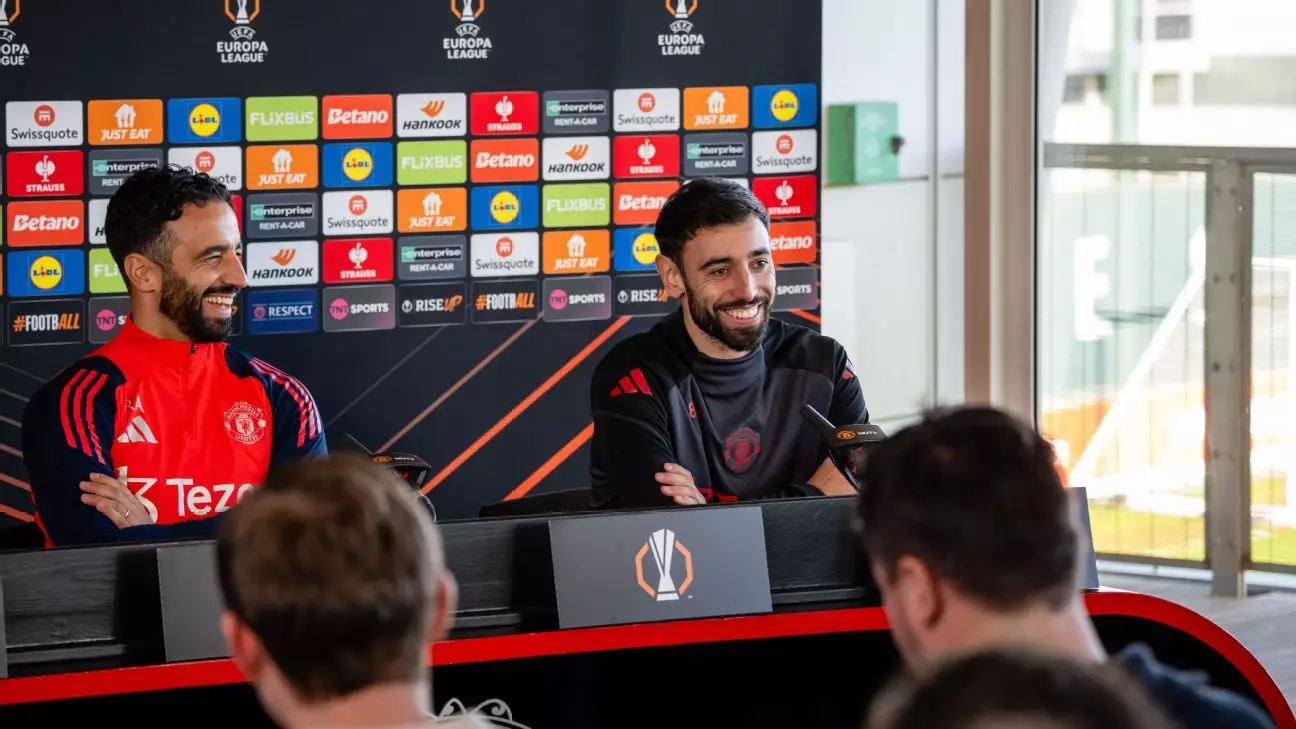Bruno Fernandes, the captain of Manchester United, is stepping into a pivotal role as the team adjusts to the tactical philosophy of their new coach, Ruben Amorim. Following a disappointing start to the season that culminated in the dismissal of Erik ten Hag, Fernandes recognizes the magnitude of the challenge ahead. According to Fernandes, ensuring that his teammates comprehend Amorim’s strategic approach is not just beneficial; it is integral to the success of the squad. The responsibility placed on a captain in times of transition is substantial, as navigating uncharted waters demands effective communication and a deep understanding of the game.
Amorim has been candid about the trials that lie ahead. After a 1-1 draw against Ipswich during his inaugural match, he indicated that the team will encounter difficulties while they adapt to his methodologies. Fernandes is aware of these challenges and has expressed his determination to accelerate the adaptation process. He stated, “I try to absorb everything from every position,” emphasizing his commitment to understanding the intricacies of the coach’s plan. This willingness to learn from various perspectives illustrates Fernandes’ proactive approach and highlights the necessity of adaptability in football. His comments reflect the essential link between tactical understanding and on-field performance.
Communication: The Bridge Between Plans and Performance
One of the key aspects of a captain’s role is to act as a conduit for communication between the coach and the players. Fernandes articulated the idea that during matches, there are numerous factors—like stadium noise—that can hinder the manager’s ability to relay instructions. In such scenarios, it falls to the captain to take the reins, decode the tactical instructions, and disseminate them on the pitch. This ability to orchestrate play and provide solutions in real-time is what defines effective leadership. Fernandes’ awareness of these dynamics showcases how critical adaptability and situational awareness are for his teammates.
Furthermore, the Portuguese midfielder is keenly aware of the shared responsibility among players when transitions occur. He pointed out that the decision to change managers often comes when the team’s performance is lacking. In light of this, Fernandes emphasized the importance of collective accountability, underscoring that the blame should not rest solely on the shoulders of one individual. This collaborative mentality can foster a more unified locker room, encouraging players to take ownership of their roles within the team structure. It’s a reminder that success in football is ultimately a team endeavor, where every player, including the leadership, must pull in the same direction.
As Manchester United prepares to face Bodo/Glimt in the Europa League, the team stands at a crossroads. With Amorim at the helm and a captain dedicated to both learning and leadership, the club has an opportunity for rebirth. Fernandes’ efforts to bridge the communication gap and his focus on developing a comprehensive understanding of the new tactical layout may very well determine the success of this fledgling era. Watching how this situation unfolds will be fascinating, not only for United’s supporters but for everyone who appreciates the intricacies of team sports.

Leave a Reply